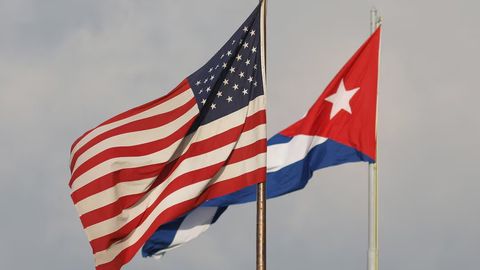Following Washington’s announcement that the communist nation would be taken off its terror list, Cuba claims it will release 553 detainees.
In an agreement that would see the release of detained demonstrators in the communist nation, the White House said that President Joe Biden is lifting the US designation of Cuba as a state supporter of terrorism.
A senior administration official told reporters on Tuesday, “An assessment has been completed, and we do not have information that supports Cuba’s designation as a state sponsor of terrorism.”
According to him, the Catholic Church was “significantly advancing” a deal with Cuba that would permit the humanitarian release of “political prisoners in Cuba and those who have been detained unjustly.”
Republican Donald Trump, who restored the designation in the final days of his first term in 2021, is expected to reverse the decision when he returns to office next week.
Soon after Washington’s statement, Cuba declared it would release 553 detainees who had been detained for “diverse crimes”.
“To grant freedom to 553 persons who had been duly tried for diverse crimes,” Cuba’s Foreign Ministry stated in a statement following President Miguel Diaz-Canel’s announcement.
Ted Cruz, a Cuban-American member of the US Senate’s Foreign Relations Committee, labeled Biden’s speech Tuesday a “rank appeasement of the Cuban regime.” Biden’s friends swiftly criticized Biden for the decision.
“More challenging conditions”
Along with Trump’s 2017 letter strengthening US policy toward Cuba, the US would also reduce some economic pressure on the island nation.
According to analysts, the government’s economic mismanagement and the Covid-19 outbreak, which severely damaged tourism, have had a significant impact on the economy’s current status.
However, Diaz-Canel has called the US sanctions “genocidal” and stated that his nation was ready for “more difficult circumstances” following the victory of Trump.
Weeks after Trump’s reelection, Diaz-Canel stated that Cuba was prepared for “dialogue” with the new government.
The Cuban government attributes the island nation’s biggest economic crisis, which includes shortages of food, fuel, medicine, and energy, on more than 60 years of US sanctions.
Around three years ago, blackouts and skyrocketing food costs sparked anti-government protests never seen before, with hundreds of people imprisoned and some receiving lengthy prison sentences, according to rights groups.






